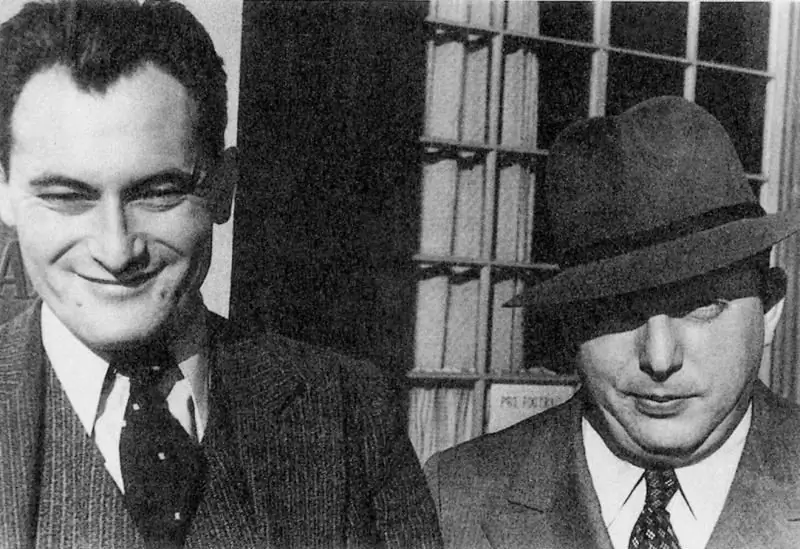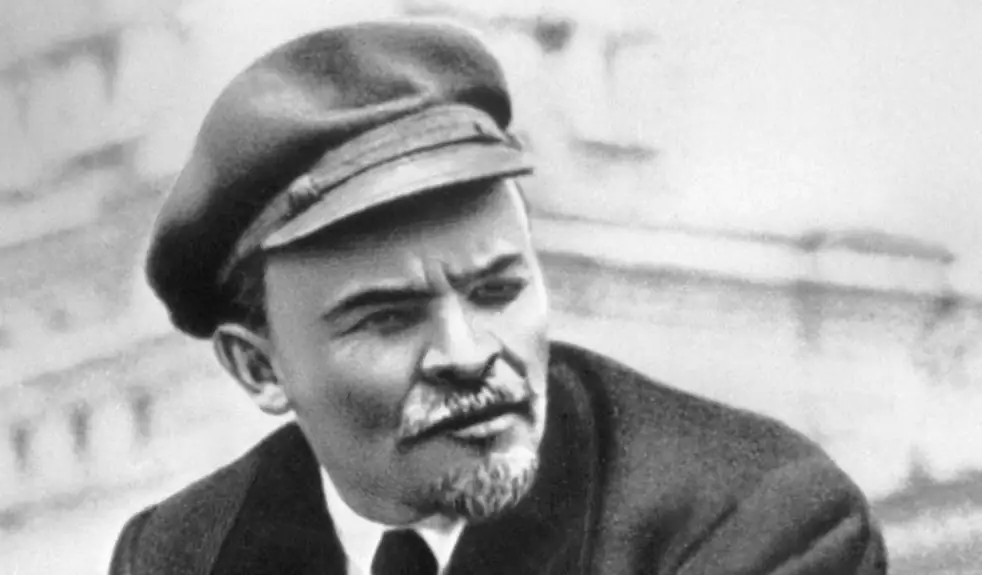2026 Author: Leah Sherlock | sherlock@quilt-patterns.com. Last modified: 2025-01-24 17:46:28
The expression "as you call a ship, so it will sail" belongs to the famous captain Vrungel, the hero of the popular Soviet animated series, which was filmed in the 1970s. It was a film adaptation of the famous children's story by A. Nekrasov about the adventures of this character. In one of the episodes, a song was performed to the verses of E. Chapovetsky, set to the music of G. Firtich. In it, the brave hero declares that the name of the vessel determines its fate, despite its technical data. This remark fully justified itself during the exciting adventure of the captain and his assistant Loma.

First failure
The meaning of the phrase "as you call a ship, so it will sail" should be considered in the context of the analysis of the cartoon's plot, which generally coincides with the content of the book. In the first episode, Captain Vrungel receives an offer to participate in a sailing regatta. To do this, he begins building his own ship (in the author's story, he uses a ready-made yacht). Then he decides to give his offspringappropriate name: "Victory". However, just before the start of the round-the-world trip, two letters disappear, and the ship is now called "Trouble". The name began to justify itself already at the beginning of the voyage: having gone out into the open sea, the captain and his assistant fall into the tide and get stuck in the fjord. Then, instead of sailing away, both heroes rescue squirrels from a burning forest, unsuccessfully try to turn them into a zoo, and only after all these misadventures, they finally set sail.
Further adventures
The phrase “as you call a ship, so it will sail” sounded so expressive and colorful in the animated series that it became a real folk aphorism. The fact is that the audience liked and remembered the funny adventures of Captain Vrungel so much, and the expression fit the plot of the story so well that many take it literally. And indeed, the name "Trouble" seemed to determine the misadventures of travelers. During their trip, they become embroiled in the showdown of the Italian mafia.

One of the gangsters stole the statue of Venus, for which a real hunt begins. By chance, our heroes are drawn into this intrigue, as the thief becomes a member of the Trouble crew. The captain, noticing that he does not know maritime affairs at all, undertakes to teach him the craft of a sailor, while several gangsters sit on their tail in order to intercept the statue. Thus, the name of the ship fully justifies itself again.
Chase
The words "as you call a ship, so it will sail" are important for the developmentplot in the cartoon, because they largely explain all the misadventures that befell the captain and his assistant. Despite the fact that "Trouble" breaks into the lead, she is temporarily removed from the race because of the squirrels. However, Vrungel finds a way out, demonstrating the ability of these animals to accelerate engines. The yacht is launched into the open sea again, but it is followed by gangsters and agent 007, who is entrusted with the search for the stolen statue. After a while, the travelers get into a calm, and the gangsters try to take advantage of the situation to intercept Venus. The detective tries to do the same. However, thanks to Lom's ingenuity, the ship sets sail again, avoiding trouble for a while.

Events at sea
Andrey Nekrasov wrote a fairy tale that immediately became popular with Soviet readers. The cartoon, despite some changes, as a whole conveys the spirit of the book. Despite a successful maneuver that allowed the captain and his assistant to continue on their way, misadventures continued to haunt them. At sea, the bandits again tried to intercept the statue, but they did not succeed. They did not succeed in completely neutralizing agent 007, who relentlessly followed their trail. Thus, the captain's phrase continued to fully justify itself: misfortunes followed the yacht "Trouble" literally on the heels, not allowing the crew to rest or even relax at least for a while.

Further adventures of travelers are transmitted almost in the same sequence as Andrei Nekrasov described them in his book.
Africa Adventures
The brave sailors decided to make a stop in Egypt in order to replenish their supplies, and at the same time to see the local attractions. In this country, gangsters again want to intercept the statue from their accomplice Fuchs. The situation is complicated by the agent, who is still on the trail. This is how the phrase “as you call a ship, so it will sail” justifies its meaning. Who said these words is a question that is of great importance for understanding the meaning of everything that happens in the story. Captain Vrungel, as if justifying his own name, gets into such alterations that, it would seem, it was hard to imagine. Indeed, to whom else, if not him, could merchants sell crocodile eggs instead of ostrich ones? Thus, the captain's song about the name of the ship came in handy.

Capture
After the release of the cartoon about the adventures of Captain Vrungel on the Soviet screens, the phrase “whatever you call a ship, so it will sail” went to the people. Where the expression comes from, however, not everyone will now remember, although this aphorism is probably known to everyone. Further adventures showed how right the captain was when he attached such great importance to the name of the ship. Indeed, after a while the ship ends up on a desert island, and the crew becomes prisoners of smugglers, who finally get the statue of Venus. By some miracle, they manage to escape, andagent 007 delays the bandits for a while. Then Vrungel heads for Antarctica, but they overtake them here too. After a short race, the crew still breaks away from the chase and heads towards the equator.

Island Adventures
The expression "as you call a ship, so it will sail", the meaning of which is determined both by the text of the song and the plot of the cartoon, runs like a red thread through the story. After some time, the crew of the "Trouble" saves a sperm whale with a cold, he sneezes, and the yacht in some incredible way is ahead of all the other participants. However, the bandits continue their pursuit, they lure the sailors into an impromptu bathhouse. But after the explosion on the island, the case with the statue again leaves the hands of the gangsters. Meanwhile, Fuchs confesses his origins and crime to the captain. Both decided to send the statue back to the museum. After some time, the heroes end up in the Hawaiian Islands, where the natives ask them to take part in a local concert. During the performance, the bandits steal the double bass case and run away. Meanwhile, "Trouble", contrary to its name, comes to the finish line first, and the bandits return to their boss, thinking they are carrying a statue with them.
Conclusion
However, the ending of the book and the cartoon seem to be opposed to the words "whatever you call a ship, so it will sail." Vrungel, together with the crew, completes the race, using bottles of champagne for this. At the same time, he manages to expose the mafia chief. So, the meaning of the phrase, it would seem, justifieshimself during the journey, lost its meaning. And although the brave captain sang that the name of the ship determines the success of the voyage, history says that the outcome depended on the actions of the heroes.
Recommended:
"Swift jack": the origin of the expression and its meaning

“Waves fell down with a swift jack” - a strange phrase, isn't it? It is related to one of the characters in The Twelve Chairs, the famous novel by Ilf and Petrov. Over time, the expression "swift jack" became a phraseological unit. When is it used and what is meant by it? This will be discussed in the article
Great Russian chauvinism: the history of the appearance of the expression, its meaning, periods of use with quotes

The expression was most widespread in the society of liberal revolutionaries of the late nineteenth and early twentieth centuries. As soon as the Bolsheviks gained power, the expression sharply acquired an extremely negative connotation, great-power chauvinism was opposed to internationalism
"Oatmeal, sir!" Where does this expression come from?

Parsing the phrase "oatmeal, sir." Where does this expression come from. For what purpose was it invented by the director Maslennikov and what came of it. Do the British really respect oatmeal? Competitions in Scotland and the Bunting Festival in the USA. Examples of using the winged expression
What is a reality show: where did the expression come from, the meaning and reasons for its popularity

Reality show is a type of online broadcast and entertainment TV show. The plot is as follows: the actions of people or groups of people are demonstrated in an environment close to life. The meaning of the word "reality show" is "reality", "reality" (from the English word reality)
The meaning of phraseologism "you can't cheat on chaff". Its origin

This article discusses the idiom "you can't cheat on chaff". The interpretation and etymology of the expression

